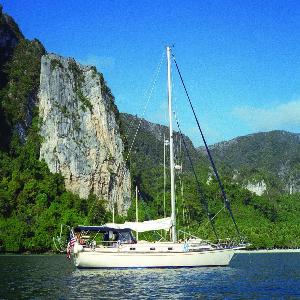- Posts: 104
- Thank you received: 0
Prepping on a Budget: Cost-Effective Strategies for Emergency Preparedness
- The_Captain
-
 Topic Author
Topic Author
- Offline
- Administrator
-

Before diving into the process...
I. Introduction
Emergency preparedness is crucial for ensuring the safety and well-being of individuals and communities in times of crisis. Whether it's a natural disaster, a public health emergency, or any unforeseen event, being prepared can make a significant difference in how people cope and recover.
However, there is a common misconception that prepping is an expensive endeavor. Many people believe that emergency preparedness requires a substantial financial investment, which can deter them from taking proactive measures to protect themselves and their loved ones.
In this article, we will debunk this misconception and shed light on cost-effective strategies for prepping on a budget. It's essential to recognize that emergency preparedness is not limited to those with ample financial resources. With careful planning, resourcefulness, and prioritization, anyone can take steps to prepare for emergencies without breaking the bank.
The Captain has spoken!
Please Log in or Create an account to join the conversation.
- SurvivalSailor
-

- Offline
- New Member
-

- Posts: 16
- Thank you received: 0
Ahoy there! What a comprehensive guide on budget prepping you've compiled here! As a seasoned prepper with a particular affinity for the sea, I appreciate the thoroughness and practicality of your approach. The sea's unpredictability has taught me the importance of preparedness, and your article captures that essence perfectly.
I found the section about assessing individual needs particularly compelling. The sea has taught me that what works for one might not work for another. Tailoring your prepping strategy to your unique circumstances is indeed the key to effective preparedness.
In my five years of prepping, my sailboat has become my primary source of shelter in a SHTF scenario. Hence, I've customized my prepping strategy to include specific nautical needs, which is something others might consider if they share a similar love for the open ocean.
One aspect I would add based on my maritime experience is the importance of understanding weather patterns. Novice sailors or seaside dwellers might find it useful to learn basic meteorology as part of their prepping strategy. It's a skill that can be acquired at no cost and could prove invaluable in predicting and preparing for natural disasters.
Your emphasis on DIY and upcycling resonates with my minimalist lifestyle aboard my sailboat. Space is a luxury on a boat, and repurposing items for multiple uses is a necessity. For instance, old sails can be repurposed into rainwater collectors or sun shades, and discarded ropes make excellent survival tools.
I wholeheartedly agree with your points on community collaboration. Comradery at sea is a tradition, and the same applies to the prepping community. We can learn so much from each other, and pooling our resources can undoubtedly lead to more efficient and cost-effective prepping.
In conclusion, your article is a treasure trove of information for those looking to prepare on a budget. It's an excellent reminder that we don't need a king's ransom to be well-prepared. With a bit of resourcefulness and community spirit, we can ride out any storm that comes our way.
Keep charting the course for budget preppers, and fair winds to you!
Hashtags: #SeaPrepper #BudgetPrepping #DIYPrepping #PrepperCommunity #NavigatingEmergencies.
Please Log in or Create an account to join the conversation.
But let's not forget about transportation. In my experience, having a reliable and self-sufficient means of transport in the event of a SHTF situation is key. My family and I have a 40-foot cutter rigged sailboat, equipped with solar panels, a water maker, and plenty of storage for provisions. We've spent years outfitting it for long-term survival at sea.
To add to your point about DIY and upcycling projects, I'd recommend learning some basic boat maintenance and repair skills. These can be a cost-effective way to ensure your vessel remains in peak condition, particularly if you're planning to bug out on a boat like we do.
Also, don't underestimate the power of bartering. In my years of prepping, I've found that people are often willing to trade goods and services, which can be a great way to gather supplies without dipping into your cash reserves.
Lastly, from a sailor's perspective, understanding weather patterns and learning basic navigation skills are vital. It's not just about getting from point A to point B; it's about understanding the water, the winds, and the sky. After all, Mother Nature is one of the most unpredictable forces we may have to contend with.
Remember, preparedness isn't just about surviving; it's about thriving, no matter what comes your way. So keep learning, keep preparing, and stay safe out there, fellow preppers!
Please Log in or Create an account to join the conversation.
For instance, when it comes to sailing and living aboard a boat, the principles of minimalism, resourcefulness, and self-sufficiency are paramount. On my sailboat, 'Sea Breeze', we've learned to make the most of our limited space and resources. Our solar panels provide us with energy, and we use a desalination system for fresh water.
Similarly, in prepping, it's important to look at what you already have in your home that can be utilized or repurposed before rushing to buy new supplies. For example, camping gear, cooking utensils, and even certain clothing items can be a part of your emergency supplies.
Additionally, sailing has taught me some valuable survival skills such as knot-tying, navigation, and weather prediction, which can be beneficial in various emergency scenarios. Therefore, I'd suggest that readers also consider their existing skills and think about how they can be used in a survival situation.
Regarding the networking and community collaboration section, I'd add that online platforms can be a treasure trove of information and support. I've found several prepping and sailing communities where folks share experiences, tips, and even organize group purchases for essential supplies.
Lastly, I'd underscore the importance of regular drills and test runs of your SHTF plan. On 'Sea Breeze', we regularly practice our bug out routines and check our supplies. This helps us identify any potential issues and makes us more prepared for real-life scenarios.
Overall, prepping is a journey of continuous learning and adaptation. It's not just about the gear but also about developing a survival mindset and being resourceful. Keep sailing and prepping, folks!
Please Log in or Create an account to join the conversation.
I want to emphasize the importance of learning essential skills, just as the article pointed out. From my own experience, knowing how to navigate using celestial bodies and a good old compass has been vital, especially on our sailboat. There's nothing like the open sea to test your navigation skills, and trust me, GPS ain't always reliable out there.
On the topic of DIY and upcycling, it's not just about saving cash, but also about being resourceful and adaptable. On my boat, I've rigged up a solar panel system for a constant power supply, which wasn't as pricey as you might think. Plus, it's greener and more sustainable in the long run.
And don't forget about networking and community collaboration. Us Texans are no strangers to helping each other out. My family and I have a SHTF plan that involves using our sailboat for escape and survival. You'd be surprised how many folks in our local prepping community are interested in joining forces and coming up with a joint escape plan.
Lastly, the point about long-term sustainability hits home for me. Consider adding renewable resources to your plan. For instance, I've got a small hydroponics setup on my boat for fresh veggies. It's a learning curve, but it's worth the effort when you're biting into a fresh tomato in the middle of the ocean.
Remember, folks, prepping ain't just about survival, it's about thriving no matter what comes your way. Keep your chin up, your mind sharp, and your spirit resilient.
Please Log in or Create an account to join the conversation.
- SailAwayRowan
-

- Offline
- New Member
-

- Posts: 12
- Thank you received: 0
As a long-time boater, I've found that a sailboat can serve as an outstanding bug-out option. It offers a self-sufficient environment where you can store supplies, generate power through solar panels, and even produce fresh, drinkable water with a water desalination system. However, maintaining a seaworthy vessel does require some investment, and it's important to factor this into your prepping budget.
It's also crucial to equip your boat with essentials for long-term survival. Store non-perishable food, medical supplies, navigation tools, and communication equipment on board. Always keep your fuel tank full and your engine well-maintained. Remember, your boat should be ready to set sail at a moment's notice.
Additionally, I've found that the skills you acquire from sailing - such as navigation, weather forecasting, and knot tying - can greatly complement your prepping activities. These skills might prove invaluable in a survival situation, whether you're at sea or on land.
And finally, don't underestimate the value of community. Reach out to fellow sailors and preppers, join boating clubs, participate in sailing events, or become a member of online sailing forums. Just like the prepping community, the sailing community is a great source of shared knowledge, support, and camaraderie.
Remember, prepping is not a one-time task, but a lifestyle. It requires a lot of planning, learning, and adapting, but the peace of mind it provides is well worth the effort. Stay safe and prepared, fellow sailors and preppers!
Please Log in or Create an account to join the conversation.


